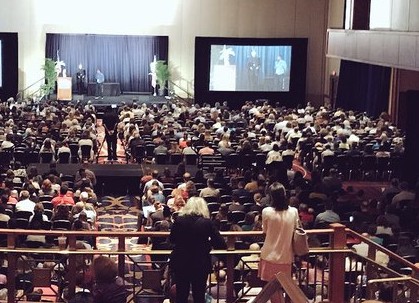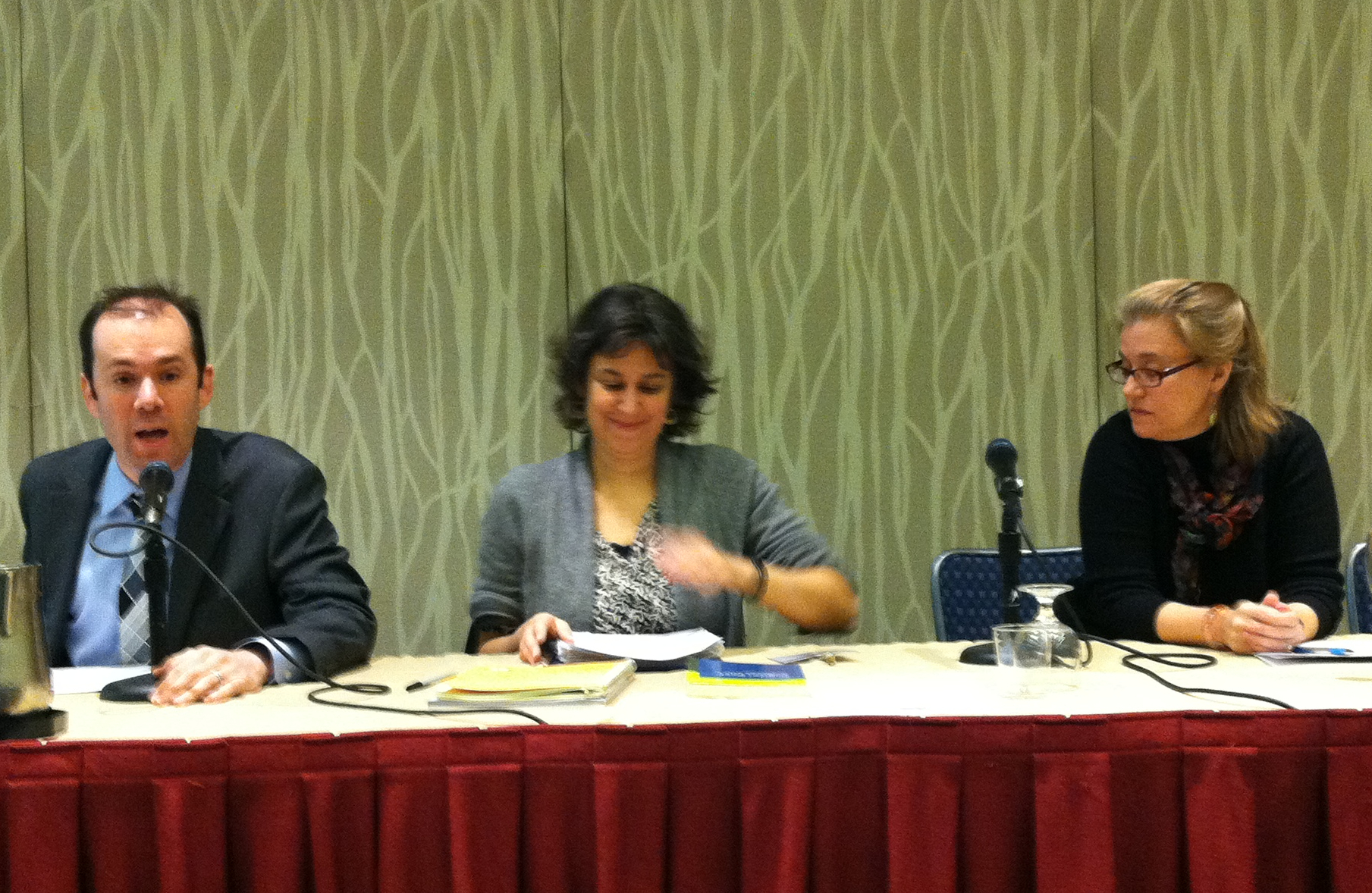In April 2021, the Society for Historians of American Foreign Relations (SHAFR) published an academic jobs crisis forum edited by Daniel Bessner and Michael Skenes. Contributors shared structural, cultural, economic, and organizational analysis and personal perspectives. Essays drew on some of what we see and consider as historians: records, memoirs, retrospective accounts of events, and the results of qualitative and of quantitative research.
My essay provides additional context on how to support and prepare job seekers as they consider where to find employment. Although alt-ac can be taken to mean a second choice or alternative to what didn’t work out, some have public history or history-adjacent knowledge worker jobs in mind during their undergraduate and graduate school years. James Grossman and Anthony Grafton looked in 2011 at the wide range of jobs history PhDs do outside the academy and the impact of language and framing. My essay covers related issues, including seemingly unmediated yet often “guided” conversations online about job searches.
Job precarity and contingent labor affect some alt-ac as well as academic workplaces. Competition for scarce job openings for archivists, librarians, museum educators and curators continues to reflect sharp supply and demand imbalances highlighted by the 2008 recession. As with history PhD programs and academic jobs, library and information science graduate programs produce more degree holders than the market demands.
During the 1970s and 1980s, U.S. Federal government employers sought historians for archival employment and for agency history programs which grew out of efforts to preserve institutional memory during World War II. In 1986, the U.S. General Accounting Office (since 2004 the Government Accountability Office) issued a Fact Sheet on the cost and use of Federal history programs at one Cabinet department. In 1987, GAO established the internal History Program office where I later would work as sole agency historian from 1995 until retirement in 2016.
Federal agencies still hire academically trained historians but there are fewer openings than in the 1980s. During the Bush administration (January 2001-January 2009), initiatives to separate “inherently governmental functions” from ones deemed suitable for privatization led some agencies and departments to adjust hiring practices. Records management, traditionally done by civil servants, now reflects hybrid teams of permanent staff and contractors. Some agencies use skilled contract historians with Master’s or PhD degrees to support public history activities, as well.
How you use and demonstrate credentials in a job search is dynamic. What works in one setting (academic, corporate, government) may need adjustment in another. The individuals who affect your future may hold credentials reflecting subject mastery equivalent to but different from yours. Some potential colleagues will recognize yours while others may not. The public display of expertise academic historians rely on in the publication process is not always available to practitioners in backroom alt-ac jobs.


Informal networks can help set expectations for job options. Familiarity with others’ work may reduce some of the microagressions that add stress during academic and alt-ac job searches. Older historians, political scientists, archivists, and librarians got to know each other by word of mouth, letters and email, scholarly publications, newsletters, and in-person conferences (photos Society of American Archivists (SAA) and American Historical Association (AHA), 2014). Now students and practitioners meet online. No two online communities are the same as people Follow and engage with practitioners with different experiences.
The online voices of Jarrett M. Drake of Yale (B.A. History) and Harvard (PhD candidate Anthropology); Timothy Naftali of Yale (B.A., History); and Harvard (PhD History) and Jake Anbinder of Harvard (PhD candidate, U.S. History) illustrate this. Tim Naftali’s tweets reflect experience in jobs as an academic, consultant, program director, former Federal official, and CNN presidential historian. Jake Anbinder reflects individual Social Media use by an Ivy League U.S. history doctoral candidate.
Jarrett Drake provides insights on community engagement, liberatory memory work, prison abolition, and change activism. He holds a M.S. in Information Science from the University of Michigan and worked in the archives field from 2011 to 2017. His research interests in Social Anthropology include intimacy, temporality, class, gender, race. I first met him in an online professional forum where his experiences from 2013 to 2017 offered insights on navigating a virtual community dominated by older members of majority White professions.
An adjunct who left the University of California (UC) system recently wrote about labor unions, working conditions and churn. She faced hardships she couldn’t share in the classroom while hearing from students who thought she had “already made it.” Some of her students said they wanted to turn to PhD programs because of her. One pointed to her example as an admired “first Latina professor.” Despite having to leave UC, the educator still meets with students (some first gen college) but struggles internally with a sense of failure. “After all my grandparents’ and parents’ sacrifices, here I was with a PhD but without stable employment. …The reality is I will never be able to give back to my parents. For children of immigrants, this feels like absolute failure.”
Along with the college tuition debt burden come expectations. You hope that an academic field of study you initially chose in your late teens will support your goals for a job and career. As you interview for jobs, you navigate display of the subject mastery your degree and credentials indicate and also the other skills that particular academic and alt-ac workplaces require. Knowing how to highlight “soft skills” if you get to the interview stage can help, especially for some alt-ac jobs.
Depending on the private or public sector employer, you may need to adjust the brag/self promote and teamwork/collaborate elements in describing your potential contributions to a workplace. Government jobs reflect a number of legal requirements, among them veterans preference. In applying for jobs using the Federal USAJobs portal, current job seekers need to address (but not copy/paste language directly from) requirements in specific job announcements.
Some potential employers post useful information on competencies, including core elements. If there’s a union, learn how it voices group values, not just what it can do for you. AFGE Council 260, National Archives and Records Administration (NARA), comments letter, 2013: “NARA’s employees believe that they are part of something bigger than themselves, and view their labor, at times tedious and repetitive, to be part of the foundation of our democracy.” If you’re coming in to an alt-ac job at a rank outside the bargaining unit, general awareness (at a minimum) of colleagues’ contributions and whether their career options differ from yours will help you connect with and respect others. Workplace ethics training also helps.


Thoughtful observers of academic life such as Dr. Timothy Burke of Swarthmore offer technical, cultural, and psychological insights. In “Academia: Falling Away” Dr. Burke wrote that “if you’ve been hired into a tenure-track position in an American university or college, unless you are supremely arrogant or unobservant, you know you’ve mostly been lucky.” He noted,
You’ve already dealt with increasingly aggressive intrusions of for-profit publishing, corporate money and administrative dictates into the core work of scholarship and teaching. You’ve likely had faculty mentors who feel increasingly helpless as local traditions of faculty governance wither and fall away, as fundamental changes in the workings of the university are made without any consultation while administrative hierarchies perpetually widen and lengthen. You have likely dealt with undergraduates who feel increasingly confused and anxious about what awaits them after graduation, who are increasingly cynical about the accelerating credentialism of all of higher education, and who are deeply impatient with the unfinished work of making higher education a welcoming and supportive home for all. You may have had campus police constantly challenge you for your ID because they think you look like someone who doesn’t belong there.
Stacie Williams, then an intern manager in an academic library, observed in 2016 that the student experience in supporting campus knowledge work offers lessons in privilege and fit.
We ask them to work in spaces that have historically been cruel or closed off to them — especially if we are talking about city-based universities, many of which have contentious relationships and histories with their surrounding communities. And then we ask these students, interns, and volunteers to be grateful for the privilege. We tell them to apply for this privilege and we will bestow on them the honor of accepting it only if they “fit in,” as Angela Galvan concludes in her article “Soliciting Performance, Hiding Bias: Whiteness and Librarianship.” If they make our gatekeepers comfortable. If they know the right jokes or listen to the right music or watch the right kinds of shows or perform gender identity in a subjectively acceptable way. And we expect little to no criticism for it.
Lagerwhat wrote at Finding Aid blog of peers’ failure to recognize her credentials at a SAA conference. “Between the older women in shock that I left, the young grad students who couldn’t seem to fathom this whole house?… wife?… thing, to pretty much every single attendee who asked what I did for a living and had their inability to process ‘home now, still learning, planning to work again later’ visible on their faces.” She added, “Relevance dissolved. Intellect disappeared. Existence extinguished.” Yet her MSLIS degree reflected the same classroom subject mastery as that of others at the conference.
I’ve learned from Lagerwhat’s blog posts and her tweets about new primary sources, research, and books I hadn’t read. The unwarranted rejection to their faces of others’ credentials can reflect group members’ fear that they, too, may lose group-valued status too narrowly defined by “select” jobs. Vocational awe, if present, need not lead academic or alt ac practitioners to lose sight of shared credentials.
Creation of an inclusive online community of the type Kate Theimer wisely guided for a decade at her website requires skills useful in jobs where you have people in your care. How individuals interact online can provide clues about workplaces. Jobs that affect many lives put you in the spotlight. If you’re a history or political science professor, prepare your students for recognizing the skills of a T. J. Stiles. But also for seeing educators and civil servants reduced online to stereotypes (or worse). Social Media use can’t change dug-in beliefs but can enhance community values.
Pamela Wright (NARA Chief Innovation Officer) shared a tweet from T. J. Stiles in 2018: “The biographer’s ethic is pretty much the opposite of social-media culture. You have to seek—& appreciate—contradictions, complexity. You value context. You retain an awareness of the good & bad in someone at the same time. As Brenda Maddox asked, ‘What’s love got to do with it?’”
In 2020 a reporter asked Paul Musgrave, a political science professor at University of Massachusetts Amherst, about his use of Twitter. “If you study politics, you just have to be there.’ He keeps up with news, colleagues, and research on Twitter and sees his own tweets as an escape valve.”
Kevin Kruse described Twitter in 2015 as “global office hours.” As a well-established senior scholar, he found that “Twitter works best as a conversation….keep the door open and your mind too.” He noted the value of learning from “colleagues down the hall” as well as “younger professors, grad students and independent historians who work outside of academia.”
Some scholars of government turn to quantitative research while others focus on how individuals handled their careers. But workplaces, including universities, corporations, non-profits, government offices, also have rich and complex “biographies.” Recognizing and respecting humanity in the workplace helps you affect policy and decision making in certain jobs. Several PhD historians who supported my work as USGAO agency historian reflected the influence of Thinking in Time: The Uses of History for Decision-Makers (New York: The Free Press, 1986) by by Richard Neustadt and Ernest R. May. The agency head who hired me (Charles A. Bowsher, CPA) read widely in history even before entering government service.
Social Media provides only partial insights on workplaces. (The history standards we apply in our research help us sort through online storytelling.) An academic who once worked in government observed of knowledge asymmetry that at the upper levels you’re part of a team and your use of communications channels requires careful thought. Some reactions you might air out in the open as a senior academic (or address in hot takes as an undergraduate) do not fit traditional public remarks by government executives.
This level of discipline makes sense based what I’ve observed in person with executives presently at GAO and NARA. And it applies outside government, too. Timothy Burke notes that as he moved into academic administration he worked in areas he couldn’t address in public the way he talked about other issues as a student and later as a faculty member. The higher your rank, the greater your awareness of institutional stewardship and having people in your care. While sometimes misunderstood outside the peer group, self discipline can reflect acceptance of very complex obligations worthy of respect.
A former Federal official with whom I had an opportunity to talk in 2012 offered this advice at the beginning of the Obama administration. “‘Align yourself with good people’ who can determine what’s ethical and what’s not. Avoid groupthink. And challenge requests and decisions you think are wrong.” The former official recognized that questioning what you’re told to do can be risky: “‘I’m not saying it’s easy,’ he said.” He explained that challenging people may mean you won’t be invited “to the next meeting.”
There’s as much to be learned in the job search from people who struggled, as the former official did, as from ones whose bios highlight successes. But as you participate in events that will make up your own memoirs, you’re catching small glimpses of others’ different biographies and histories. Let’s use our academic credentials to understand, respect, and support them.
